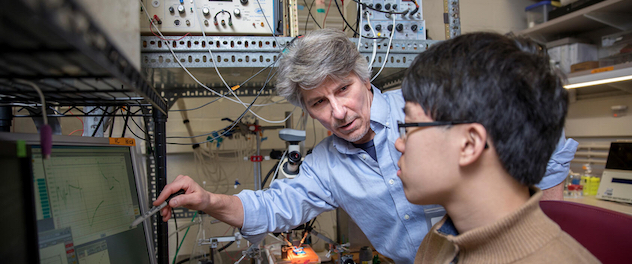Overview
 Understanding ions and solutes
Understanding ions and solutes
The Romero lab studies numerous particles to gain a better understanding of the causes of kidney disease and related conditions.
The Transporter Biology and Physiology Laboratory of Michael F. Romero, Ph.D., conducts research that advances the scientific understanding of acute and chronic kidney disease and related conditions, including acidosis, hypertension, diabetes and polycystic kidney disease.
Research in our lab focuses on the movement and balance of ions and solutes across cell membranes in health and disease. Our team investigates the molecular and cellular physiology of normal ion and solute transport in order to pinpoint the physiological causes of kidney disease and related diseases and conditions, including those tied to changes in genes.
Our lab investigates numerous particles, including:
- Sodium ions (Na+).
- Bicarbonate (HCO3).
- Hydrogen ions (H+), also known as pH.
- Chloride ions (Cl-).
- Oxalate.
- Carbon dioxide (CO2).
Our goal is to improve patient care through better understanding of the underlying causes of kidney conditions and to prevent metabolic stress that can lead to type 2 diabetes. Our team also is developing new and better tools for clinical assessment and remote monitoring of kidney function.